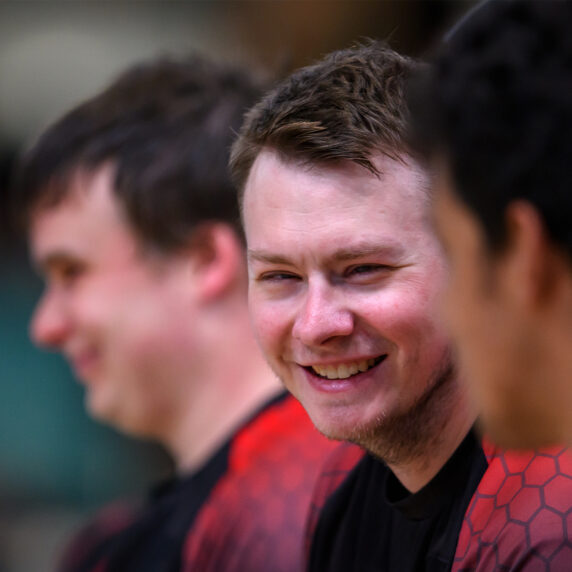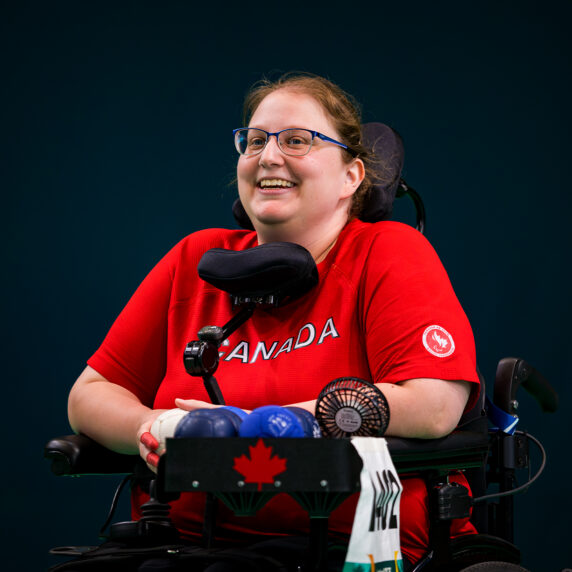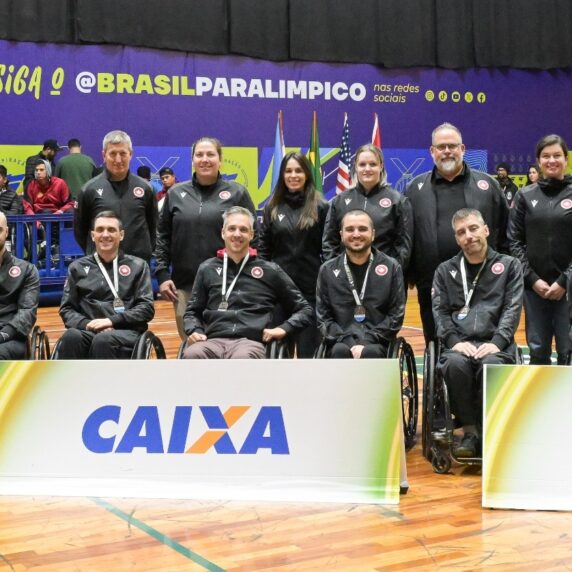Health Matters: Dr. Daphné Laurin-Landry supporting Para swimmers’ mental health in Tokyo
Swimming Canada’s performance psychologist an important resource

In a sport like Para swimming, results are measured in fractions of a second. The difference between making it to the podium or achieving a new personal best can be as fast as a snap of the fingers or the blink of an eye.
So when it comes time for Para swimmers to prepare for major events like the Tokyo 2020 Paralympic Games, mental preparation is just as important as the hours of practice they do in the pool – especially in a year fraught with the challenges and uncertainties of the global health pandemic and the absence of competition for Canadian Para swimmers, says Dr. Daphné Laurin-Landry.
Laurin-Landry, herself a former competitive mogul skier and coach, holds a doctorate in Research and Intervention in Psychology from the Université du Québec à Montreal (UQÀM, Canada) and a doctorate obtained in joint supervision in Sciences et Techniques des Activités Physiques et Sportives from Université Clermont Auvergne (UCA, France). She is currently the National Para Swimming Performance Psychologist for Swimming Canada and is part of the medical team joining the nation’s 19 Para swimmers in Tokyo.
Her addition to the team puts a stronger focus on supporting the mental health and psychological wellbeing of the Para swimming team, says Wayne Lomas, Swimming Canada Associate High Performance Director and Para Swimming National Coach.
“I have two hats and both the mental performance consulting (MPC) side and the registered psychologist side can play off of each other,” Laurin-Landry said from her office in Montreal.
“Especially now. Mental health is in. We’re talking about it in and out of the sport world. COVID has brought mental health awareness to light.”
When athletes – especially Para swimmers – compete, she says, it’s years of hard work and dedication that culminate in one short performance. There is a lot on the line.
Laurin-Landry uses the strategies and interventions typical in MPC work to help with performance, and that often includes how a swimmer prepares for a race. Together, she and each athlete will look at the type of strategies they want to use, what kinds of pre-performance routines – like visualization work – they want to establish, or anything else that can provide that extra edge and readiness.
In mogul skiing, athletes can make adjustments to their runs; they’ll often upgrade the difficulty of their jumps or tweak their speed and technique to manage the difficulty of each attempt. But in swimming, she knows there’s less flexibility.
“Swimming can be so much about one little thing that makes you succeed or not,” Laurin-Landry says. “And that can often be difficult to process when it’s not enough by so little.”
Working individually with each athlete helps her develop careful and deliberate performance strategies and self-care or recovery tools.
“I tend to appreciate the one-on-one meetings,” she says. “During those meetings, I take the time to understand who’s in front of me and see what their life is like. That way, I have a better understanding of the person and their disability, and therefore I can do better personal and individualized work with them.”
Laurin-Landry says this is why her work is focused on making athletes feel “seen and understood and validated about what they’re feeling.” And, she adds, “challenged!”
Part of the challenge is getting athletes to be open, honest and vulnerable in how they feel, what they need and what they want.
“I want to make sure athletes don’t bottle up their feelings. Sport used to be a lot about suppressing your emotions,” she says. “But if your emotions are there, there’s a reason for it so better use them!”
To delve into this, Laurin-Landry likes to take what she calls an “iceberg” approach.
“We can address the apparent issues only with MPC interventions, but when that doesn’t resolve the situation, we need to go underneath,” she says. “Sometimes before I can help with confidence, for example, I need to address self-esteem. It’s all interconnected. It means I look to create a transformation within the person.”
A transformation, she has seen, relates to the perceived value an athlete has placed on themselves.
“The process of going from devaluing to valuing myself as an athlete, that helps them as a whole person but also helps them with their performance,” she says. “It’s the mindset of ‘since I value myself as an athlete, I want to put myself in a high-performance setting in which I have the confidence in my abilities to perform and succeed and therefore I give myself better chances to perform.’”
Laurin-Landry is hopeful there will be more mental health services woven into the integrated care approach for athletes.
“Sometimes with sport, it’s less threatening to have mental health support framed as sports psychology. Either way, going forward, it needs to be considered. We just need to look at how to best do that.”
Health Matters, presented by Pfizer, shares stories of the important team behind the team, supporting the athletes’ health and wellness.
More:
HEALTH MATTERS: DR. ANDREW MARSHALL READY TO SUPPORT CANADA’S PARALYMPIANS
HEALTH MATTERS: PATRICIA RONEY HELPING CANADIAN PARA ATHLETICS TEAM STAY READY FOR TOKYO



"*" indicates required fields
"*" indicates required fields